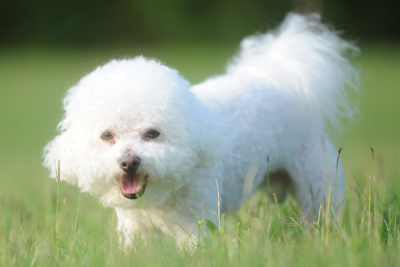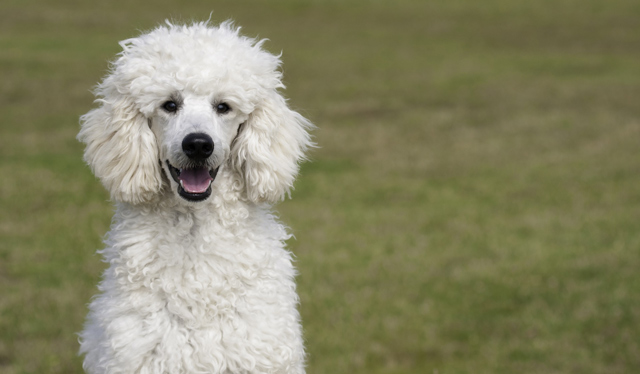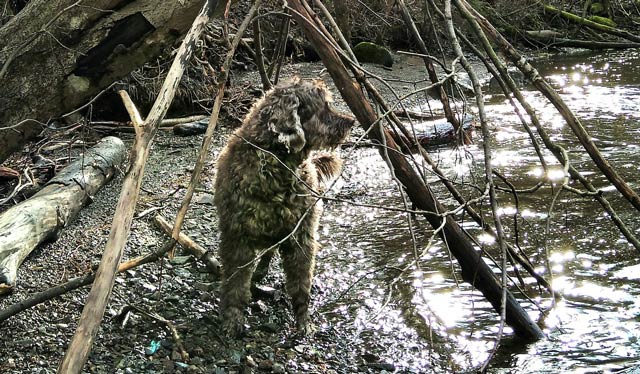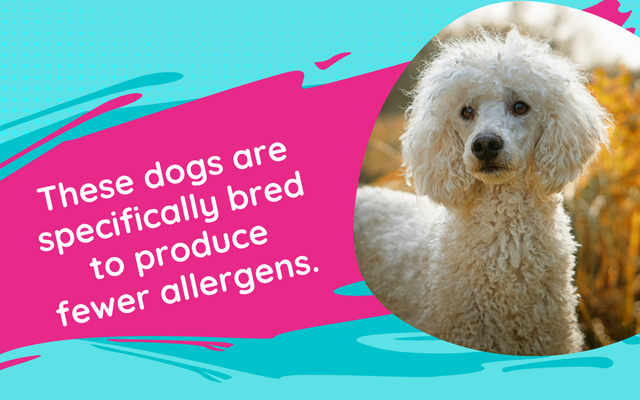Finding the Perfect Hypoallergenic Dog for Your Family: Tips for Adopting a Dog That Won’t Trigger Allergies
It’s frustrating for a dog person to be allergic to dogs.
Many people are allergic to dogs…well, not really dogs—but their fur dander, saliva, and even urine.
These aspects make it almost impossible for any dog to be 100% allergen-free. However, a few breeds, known as hypoallergenic dogs, are less prone to triggering your allergy.
To adopt one of these breeds, you need to research the specific dog. This helps you stay aware of the potential allergens in a particular hypoallergenic breed or find one that matches your specific needs.
Of course, some dogs that are hypoallergenic are going to be more expensive than high-shedding breeds, especially if the breeder is specifically advertising that they are hypoallergenic. Additionally, hypoallergenic puppies for sale will be more expensive than adult dogs, and buying any dog will always be more expensive than adoption.
In this guide, we’re covering everything you need to know about getting a hypoallergenic dog, and sharing lots of breed recommendations.
What Is a Hypoallergenic Dog?
“Hypoallergenic dogs” are dog breeds that may be less likely to trigger symptoms like sneezing, wheezing, and sniffling in dog-allergy sufferers. These kinds of dogs are typically low-shedding and drop less fur and dander than non-hypoallergenic dogs.
How Do Hypoallergenic Dogs Differ From Other Dogs?
Remember, there is no such thing as a truly hypoallergenic dog. The myth of the hypoallergenic dog was created by sellers trying to entice customers in the market for a variety of dogs that, in truth, don’t really exist.
Hypoallergenic dogs carry just many of the allergens that other dogs do, but are less prone to dropping their coats and releasing dander. If someone is allergic to dander, these varieties of dog may be less likely to trigger allergic reactions. However, if you’re allergic to a dog’s saliva, or urine, hypoallergenic dogs won’t be less likely to trigger your allergy symptoms.
What Are the Benefits of Owning a Hypoallergenic Dog?
If you’re allergic to pet hair or dander, but want to own companion dogs, hypoallergenic breeds might be the answer!
Because hypoallergenic dogs are low-shedding, owning these breeds can also mean less clean-up around the house! However, while you’ll save on cleaning, you may end up spending more time/money on keeping your dog well groomed.
Because hypoallergenic dogs shed less than other breeds, they can also be more prone to matting and collecting dirt, grass, and grime from outside. This means that they need plenty of baths and regular grooming appointments with experts. Grooming appointments can also be used to keep your dog’s feet clean, and their nails trimmed.
Popular Hypoallergenic Dog Breeds
So, what dogs are hypoallergenic, and which breeds should you be looking for on adoption websites and through reputable breeders?
Here are four of the best hypoallergenic dogs for adoption at a glance, plus a collection of 55+ hypoallergenic dog varieties to consider.
- The Cheerful Bichon Frise
- The Glamorous Shih Tzu
- The Brilliant Portuguese Water Dog
- The Loyal Poodle
If you’re looking for a friendly dog that’s easy to live with, consider one of these hypoallergenic breeds. Let’s take a closer look at each one.
1. The Cheerful Bichon Frise

The Bichon Frise (pronounced bee-SHON free-ZAY) is thought to have originated from the Spanish Canary Islands. This breed belongs to the canine family known as Barbichon and is a member of the non-sporting group.
Typically, a male Bichon is between 9.5 and 11.5 inches tall and weighs 11 to 18 pounds. In contrast, a female Bichon is between 9.5 and 11.5 inches tall and weighs around 10 to 15 pounds.
These small dogs are known for having cheerful and loving personalities which makes them fantastic family dogs, as well as its soft, curly coat. This lap dog is also visually adorable due to its fluffy white fur, cute face, and dark eyes.
Bichons are also a relatively cheap hypoallergenic dog for sale, and can be acquired relatively easily from reputable and ethical breeders.
Wouldn’t it be great to have a dog that looks like a real-life soft toy?
What’s more, Bichons don’t shed and are hypoallergenic, making them an ideal option for allergic people. You won’t have to clean dog hair off your furniture, rugs, or clothes.
Bichons love to play. They enjoy tug of war, fetching, and snuggling into your laps—making them an excellent choice for a family pet. They’re highly intelligent and respond well to training, too.
This breed is fantastic for a family looking for a long-term companion because of its extended lifespan, lasting up to 14–15 years.
Bichons get along with both people and other pets. They’re very patient, making them a great companion for children and the elderly.
If you live in an apartment or don’t have access to a backyard, this breed is a good fit because it doesn’t require much exercise. However, Bichons need affection and attention, and if left alone for long, they may develop separation anxiety.
Note: This breed may require high maintenance. You need to bathe, trim, and groom them regularly.
2. The Glamorous Shih Tzu

If you’re looking for a dog, but one person in your family is allergic, the Shih Tzu may be the perfect option. They’re among the most popular dog breeds globally, and with good reason.
They’re small pups, so don’t take up as much space in your household as a larger breed would. I think you should consider adopting a Shih Tzu as they:
- Produce less dander: Shih Tzus don’t produce as much pet dander as other breeds, so people with allergies are less likely to react to them.
- Friendly and playful: Shih Tzus are playful, unlike their larger peers bred for herding or hunting. Since they don’t have a guarding or aggressive nature, they’re very friendly with almost anyone.
- Low-maintenance dogs: Shih Tzus are low-maintenance dogs when it comes to taking care of them. They don’t need as much exercise or grooming as other breeds.
- Affectionate: Shih Tzus are loving dogs. People with allergies can enjoy the companionship of their pups without having to worry about them being too rough or demanding in nature.
- Smart: Shih Tzus are known for their intelligence and willing attitude. They learn quickly and obey basic commands, making them a great choice if you’re looking for a companion for your children.
If you’re interested in learning more about this breed or already considering adopting one, visit a local Shih Tzu rescue organization or search online for resources. Nowadays, you can easily find an organization that focuses on finding homes for Shih Tzus that are available to families with allergies.
3. The Loyal Poodle

Poodles are a favorite breed of many canine lovers and make great pets for anyone looking for a loyal dog.
Related Post: Are Poodles Hypoallergenic?
This pup is known for its curly hair and dense, double coat that has the appearance and quality of a lamb’s wool.
Despite having a curly coat, they don’t shed much. However, they need to go to a groomer regularly—ideally after 6 to 8 weeks. Remember that a dog’s grooming needs aren’t just cosmetic. Breeds like Poodles need to be groomed to prevent mats and remove built-up dirt that can irritate your dog’s skin and cause serious health issues.
These dogs are also known for their intelligence and high energy level. They make great pets for families with children due to their playful and loving nature.
Related Post: Do Poodles Shed? A Guide to Poodle Hair Care
However, Poodles should be supervised around small animals, as their demeanor can turn aggressive if they sense a threat.
Their sleek appearance, energy, and athleticism make them one of the most instantly recognizable dog breeds. They’re the perfect companion for people who lead active lifestyles, as they’re always up for a walk or a game of fetch.
They come in various colors, including black, white, apricot, and brown. There are generally three types of Poodles: miniature, toy, and standard.
| Types of Poodle | Weight (pounds) | Height (inches) |
| Toy | 6–9 | Up to 10 inches |
| Miniature | 15–17 | 11–15 |
| Standard | 45–70 | 15–22 |
Although they come in different sizes, this breed’s appearance and shape are consistent.
Poodles have canine manners, exercise regularly, and have a calm disposition. All the running around helps them burn off most of their natural energy.
Expert Tip: Although the breed is protective and affectionate with its family, it may take some time to start enjoying the company of new people.
4. The Brilliant Portuguese Water Dog

Also known as Porties, the Portuguese Water Dog is commonly used for fishing because of its swimming abilities. With its thick and waterproof coat, its body seems like it’s built for water movement.
It’s a medium-size dog that weighs about 35 to 60 pounds and is between 17 and 22 inches tall, with an average lifespan of around 12 to 15 years.
This hound has a coat of curls or wavy hair with webbed paws and a strong tail that helps it propel itself in water. Unlike other breeds, Porties have a single-layered coat with different colors—usually white, black, brown, or a mixture of white and brown or black and white.
This dog is known for its obedience, calmness, and self-sufficiency. The breed developed these characteristics while working alongside Portuguese fishers.
They carried messages from one ship to another or ship to shore and swam beneath the water surface to herd fish into nets. They also retrieved lost or broken fishing gear whenever required.
Although they’re independent and self-sufficient, they make wonderful companions because they’re active and playful. They’re always happy and usually prefer to be around their owners, making them an ideal choice for anyone who wants a fun and functional dog.
Their dense and curly coat means these dogs rarely shed and don’t require frequent grooming as other breeds do. In addition, their soft skin makes them less susceptible to allergies and skin conditions.
Porties are easy to train and very good with children because of their gentle and non-aggressive nature.
They make great watchdogs, as they’re alert, observant, and protective of their families.

55+ Hypoallergenic Dog Breeds
Here’s a list of hypoallergenic dogs and why they’re considered hypoallergenic.
| Breed | Hypoallergenic Qualities |
| Airedale Terrier | Wire coat, low shedding |
| Affenpinscher | Wire coat, retains dander |
| Afghan Hound | Hair coat, single coat |
| Australian Terrier | Wire coat, low shedding |
| American Hairless Terrier | Hairless dogs |
| Barbet | Curly hair coat, low shedding |
| Basenjis | Low shedding |
| Bedlington Terrier | Curly hair coat, low shedding |
| Bergamasco | Rough hair coat that forms locks that keep dander low |
| Bichon Frise | Hair coat, single coat, low shedding |
| Biewer Terrier | Hair coat |
| Bolognese | Hair coat |
| Border Terrier | Wire coat, retains dander, low shedding |
| Bouvier des Flandres | Wire coat, low shedding(Note–the Bouvier are rare large hypoallergenic dogs. For sale, they cost around $2,000-$3,000.) |
| Brussels Griffon | Wire coat, low shedding |
| Cavapoo | Hair coat |
| Cairn Terrier | Wire coat, low shedding |
| Cesky Terrier | Wire coat, low shedding |
| Chihuahua | Low shedding |
| Chinese Crested | Hairless dogs or hair coat (“Powderpuff” variety) |
| Coton de Tulear | Hair coat, single coat, low shedding |
| Dandie Dinmont Terrier | Wire coat, retains dander, low shedding |
| German Wirehaired Pointer | Wire coat, low shedding |
| Goldendoodles | Low Shedding |
| Havanese | Hair coat |
| Irish Terrier | Wire coat, retains dander, low shedding |
| Irish Water Spaniel | Curly coat (Note: this breed is double-coated but the water-repellent outer coat keeps the dander on the dog and not in the air) |
| Italian Greyhound | Very low shedding (Note: Italian greyhounds only; the other greyhound breed and greyhound mixes do shed frequently) |
| Kerry Blue Terrier | Wire coat, low shedding |
| Labradoodle | Hair coat |
| Lagotto Romagnolo | Curly coat, hair coat, low shedding |
| Lhasa Apso | Low shedding |
| Lakeland Terrier | Wire coat, low shedding |
| Lowchen | Hair coat, low shedding |
| Maltese | Hair coat, low shedding. One of the best hypoallergenic dogs for kids |
| Norfolk Terrier | Wire coat, low shedding |
| Norwich Terrier | Wire coat, low shedding |
| Peruvian Inca Orchid | Hairless dogs |
| Poodle (all 3 breeds: Standard, Miniature, and Toy) | Curly coat, hair coat, retains dander, low shedding |
| Portuguese Water Dog | Curly coat (Note: this breed is double-coated but the water-repellent outer coat keeps the dander on the dog and not in the air) |
| Puli | Curly hair coat that forms tight “locks” that keep dander under control |
| Russkaya Tsvetnaya Bolonka (Russian Colored Lapdog) | Hair coat |
| Samoyed | Naturally low dander level; however, this breed does shed a lot, so if your allergy is to dog saliva and not dander, this breed is not recommended! |
| Schnauzers (all 3 breeds: Giant Schnauzers, Standard, and Miniature Schnauzers) | Wire coat, low shedding |
| Scottish Terrier | Wire coat, low shedding |
| Sealyham Terrier | Wire coat, low shedding |
| Shih Tzu | Hair coat, single coat, low shedding |
| Silky Terrier | Hair coat, low shedding |
| Soft-coated Wheaten Terrier | Hair coat, single coat, low shedding |
| Spanish Water Dog | Water repellent curly coat, single coat |
| Tibetan Terrier | Wire coat, low shedding |
| Welsh Terrier | Wire coat, low shedding |
| West Highland White Terrier | Wire coat, low shedding |
| Wire Fox Terrier | Wire coat, low shedding (Note: the other fox terriers– the Smooth Fox and the Toy Fox– are not hypoallergenic) |
| Wirehaired Pointing Griffon | Wire coat, low shedding |
| Xoloitzcuintli | Hairless dogs |
| Yorkshire Terrier | Hair coat |
These Dogs Are Not Hypoallergenic
- Australian Shepherds
- Beagles
- Bernedoodles
- Border Collies
- Cocker Spaniels
- Cockapoo
- Corgis
- Chow Chows
- Dachshunds
- French Bulldogs
- Golden Retrievers
- Greyhounds
- Huskies
- Labrador Retrievers
- Maltipoo
- Pit Bulls
- Pomeranians
- Pugs
- Rottweilers
Adopt a Hypoallergenic Dog Today
If you suffer from allergies but long for a pup, looking for a hypoallergenic dog for adoption can help improve your quality of life by reducing your exposure to allergens. These breeds are specifically bred to produce fewer allergens.
Instead of buying a hypoallergenic dog, I recommend adopting one. Why?
- You’ll save a life: If you adopt a hypoallergenic dog, you’re not just saving his life—you’re also helping to reduce the number of shelter pets who end up euthanized because they can’t find homes.
- You’ll save money: Choosing a hypoallergenic dog will likely cost you less than purchasing another breed, both in terms of initial costs (if you adopt) and ongoing expenses (medication, food, and more).
- You’ll help prevent allergies in other people: If you have children, they’re likely to develop allergies sometime in their lives. If you look into hypoallergenic dogs for adoption, you’ll be preventing possible future allergies.
- You’ll have a loyal friend: A hypoallergenic dog is a loyal and loving companion, whether he’s originally from a shelter or not.
Wondering where to adopt a hypoallergenic dog? There are a few options to consider. These include rescue groups, local shelters, volunteering, and social media.
An important thing to remember when adopting a dog is that older dogs make fantastic companions. There are tons of older hypoallergenic dogs for adoption, so consider keeping your heart open to a senior pup.
Once you’ve found a suitable dog, make sure to ask about their allergy history and ensure that where they come from is properly cleaned to avoid any potential allergens.
Want to see our entire list of hypoallergenic dogs? It includes 55 breeds that you can consider.
How Do I Go About Finding a Reputable Breeder of Hypoallergenic Dogs?
The American Kennel Club marketplace is easily the most comprehensive source of responsible dog breeders on the internet! You’ll be able to browse photos, explore breeder credentials, and can even find recommendations for DVMs (veterinarians) in your area with a little extra searching.
Hypoallergenic Dogs for Adoption FAQS
Still have more questions about hypoallergenic dogs? Let’s see if we can answer a few of those, and maybe solve a problem or dilemma!
What Breeds of Dogs Are Considered Hypoallergenic?
We’ve got a list of more than 55 hypoallergenic dog breeds above! Some of the most popular include the Poodle, the Shih Tzu, and the Bichon Frise.
Are There Any Special Care Requirements for Hypoallergenic Dogs?
Nope, there are no universally applicable care requirements for hypoallergenic dogs. Your dog’s needs will depend on breed, personality, and genetics.
What Is the Average Lifespan of a Hypoallergenic Dog?
Because hypoallergenic dogs come in all shapes, sizes, and breeds, there is no standard lifespan for dogs that fall into this vague category.
Are Komondors Hypoallergenic?
Komondors are a breed of Hungarian guard dogs traditionally used to protect sheep and other livestock. The Komondor is an absolute beauty, known for its unique fur that can be styled in cords. With a thick undercoat, this breed isn’t suitable for humans with dog allergies.
Are Borzoi Hypoallergenic?
If you’ve been starting to notice more Borzoi online lately, that’s because the breed is having a moment! While the Borzoi isn’t hypoallergenic, it isn’t super-high shedding, and some people experience fewer allergy symptoms around this breed.




